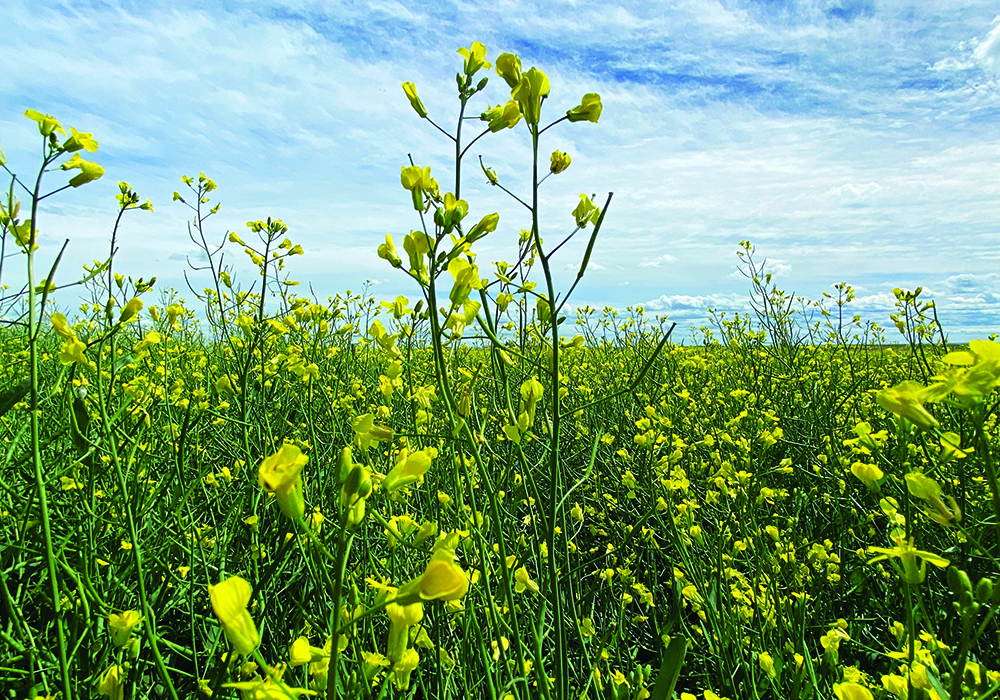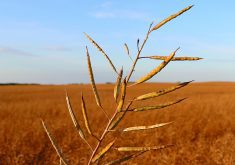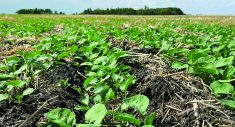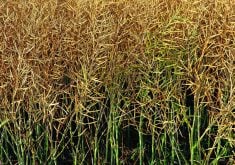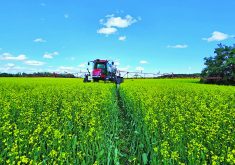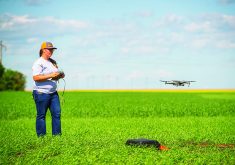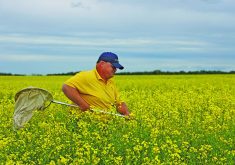Mexico departs science-based decision-making for GM crops
Canada is deeply concerned about Mexico’s recent departure from its longstanding approach to regulating genetically modified crops.
The slide began in 2018 with the election of Andres Manuel Lopez Obrador, also known as AMLO, as president of Mexico.
Other stories in the 2023 Canola Yearbook:
- Decent yields in dry times
- Canola views – photo essay
- Canola growing season in review
- Spraying in dry times can be tricky
- Flying the fields
- Hormone imbalance suspected for malformed racemes
- Incorporating resistant traits weighs on yields
- Production briefs
- Pest roundup: Canola pests kept in check by dry conditions
- Disease roundup: Verticillium has breakout year
- Canola growers scramble to address federal policy issues
- What happens when the big crop comes?
- Bids tumble but canola demand is firm
Part of his platform was a commitment to ban glyphosate and genetically modified corn by 2024.
If Mexico’s rejection of ag technology continues, it could target other GM crops.
In 2022, Mexico was Canada’s third largest market for canola. It imported $1.2 billion worth of canola seed and $436 million worth of canola oil.
“Mexico is an important and valued market for Canadian canola. It’s Canada’s largest agri-food export to (Mexico),” said Chris Davison, Canola Council of Canada president and chief executive officer. “They have a well-established processing and crushing industry.”
Davison is concerned that Mexico is moving away from science-based policies for agriculture technologies.
“There have been challenges to regulatory predictability in Mexico over the last few years that have impacted multiple crops. That was reflected in the queue of ag biotech products in their regulatory system,” he said.
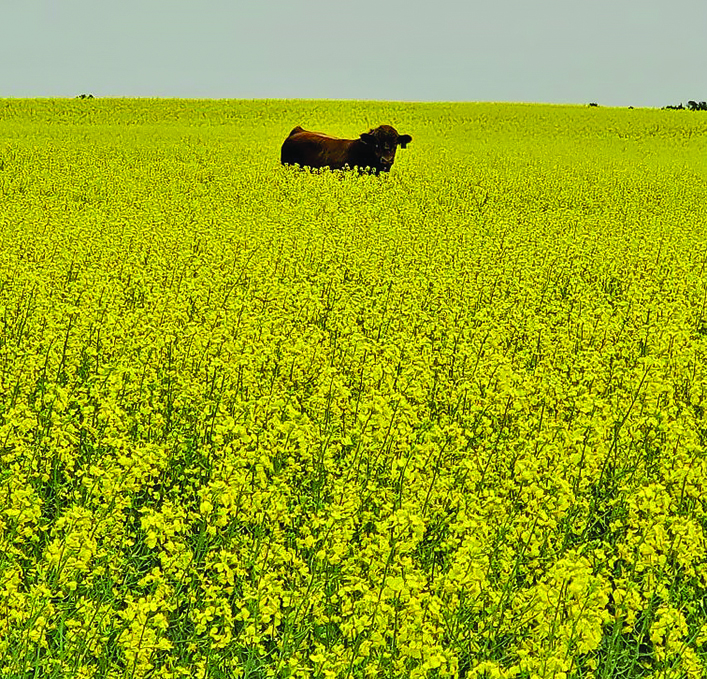
Bunge shareholders approve merger with Viterra
In October, Bunge shareholders agreed to a deal that is unprecedented in size in the global agricultural sector and will create an agribusiness giant nearer in global scale to rivals Archer-Daniels-Midland and Cargill.
The deal is expected to close in mid 2024.
Bunge’s Viterra acquisition would make the world’s largest oilseed processor more dominant as it aims to capitalize on soaring demand for vegetable oil to produce biofuel.
The buyout is being closely scrutinized by regulators concerned about how consolidation would impact the agriculture sector. Canada’s minister of transport said the Canadian government is reviewing the deal.
J.P. Morgan equity research estimated the combined company’s market cap would be around US$25 billion, compared with ADM’s US$38.9 billion market cap.
Canada moves ahead with gene editing for crops
The federal government announced its guidance for gene-edited crops under Part 5 of the Seeds Regulations.
There are three prongs to the approach:
Seeds Canada will strengthen its database to include all Canadian seed varieties and how they are produced. The database will be publicly accessible.
A government-industry steering committee will establish clear procedures for the database and recommending control measures. The committee is to facilitate discussion as gene edited products are introduced to the market.
Upon recommendation of the steering committee, the government will put in place monitoring and oversight measures to ensure the accuracy and reliability of the database.
The guidance had been held up by concerns from organic producers who oppose gene editing and said certain markets could be affected.
Flax-canola merger in Saskatchewan
The Saskatchewan Canola Development Commission and the Saskatchewan Flax Development Commission asked farmers to participate in an online survey over the summer.
The commissions were seeking feedback on a proposal for SaskCanola to assume all the activities of SaskFlax for flax seed and straw, including research, advocacy, market development, administration and communication.
“Mostly, we want to find out if there’s any major concerns that maybe our boards haven’t thought of,” said Tracy Broughton, executive director of SaskCanola.
“One of the things I have heard as a concern is that flax might be swallowed up by canola.”
Results will be shared at both commissions’ annual general meetings in January.
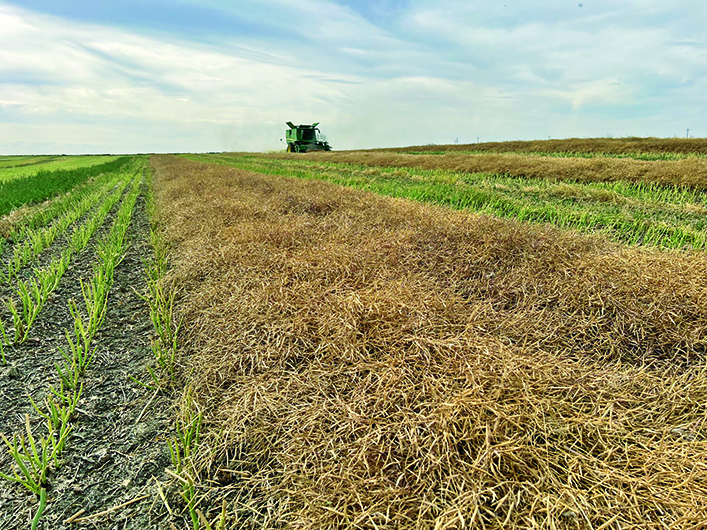
Canola sector gets research boost
The federal government is putting up $9 million to drive the sustainable growth of Canada’s canola sector.
The funding comes from the AgriScience Program—Clusters Component, an initiative under the Sustainable Canadian Agricultural Partnership and was announced on Nov. 14 in Winnipeg by Lawrence MacAulay, the federal agriculture minister.
“It will support research into improving yields, lowering greenhouse gas emissions, increasing carbon sequestration, improving soil and water quality, and creating new uses for canola,” MacAulay said.
The 2023–2028 Canola AgriScience Research Cluster is a five-year research program funded through AAFC’s S-CAP program and the canola industry.
When the contributions from the federal government are combined with contributions from the Canola Council of Canada (CCC), the provincial grower organizations, and industry members, the total funding for the project will be more than $17 million over five years. Under this funding partnership, a total of 17 projects will be carried out in collaboration with public research institutions across Canada.
Richardson sings praises for the Canola Council of Canada
Jean-Marc Ruest, senior vice-president of corporate affairs with Richardson International, said the federal government has an “overly simplistic” view of the grains and oilseeds sector when it comes to trade policy.
He said Ottawa needs to rely more heavily on industry organizations that understand the nuances of the grain trade and can provide invaluable advice on important initiatives, such as Canada’s recently unveiled Indo-Pacific Strategy.
“We have to continue supporting and investing in some of the agencies that we have,” Ruest told delegates attending a conference organized by the Canadian Agri-Food Policy Institute, the Canadian Agri-Food Trade Organization and the Canadian Global Affairs Institute.
“I think of the work that the canola council does to promote canola and how to use the product in (those) countries.”
Richardson pulled its funding for the canola council, the Flax Council of Canada and Soy Canada in 2018, saying it was not getting enough value for its $1 million annual investment in the oilseed organizations.

